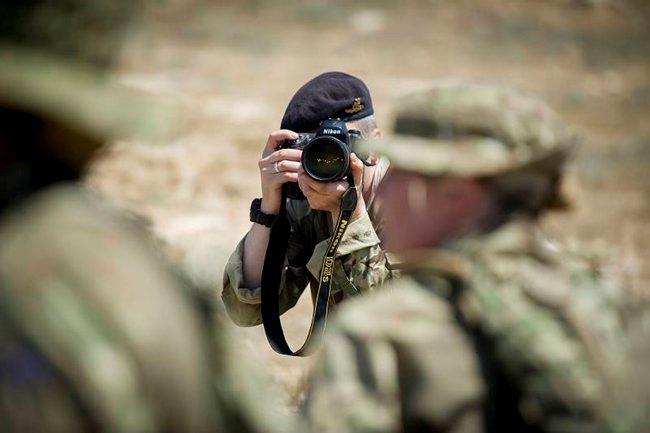
The Chief of Army’s conference was remarkably successful. That’s a truism, because those sorts of events always will be. Gather together a parade of senior officers who’ve known one another for years; all competing to outdo one another in the eye of the Chief; and all inculcated for years to behave politely and make interesting conversation, and of course it’s going to be a success. It was also particularly cunning of Angus Campbell to invite four journalists who regularly cover military matters to participate.
That’s because it stopped us ‘dissing’ the conference. More than that, we were welcomed and learnt a lot. Well, insofar as journos can be taught anything, anyway…
It was especially good to meet those officers who’ll eventually be taking over the top jobs in an off-the-record environment. Yet that’s when an interesting tension emerged. One senior officer (not, important to note, the Chief himself) quite understandably pointed out to us that the press often gets things wrong. We do. Regularly. The point is to understand why.
The officer began to tell us exactly where we were going wrong. And that’s where he was wrong. We do make mistakes, yet his solutions revealed he had no idea about the way the media works. That’s when the tension began. He continued, informing us exactly how we should go about doing our job as if he had a greater understanding of how to balance the various pressures reporters and editors are under than we did.
The more he went on, the more his analysis revealed he has absolutely no idea of those pressures. Circulation’s falling; editors are demanding exclusives that will ‘cut through’; there isn’t enough time; there isn’t enough money, and work just isn’t fun anymore.
Now don’t get me wrong. Everyone’s entitled to their view and his diagnosis was (partially) correct. Nevertheless his remedy, if applied across the board, would have put us all out of a job within weeks.
Turn the argument around the other way. When any armchair military expert tells generals what to do, the officers will be understandably annoyed. That’s the point. Nobody would trust a journo to command a platoon attack, let alone conduct a battalion withdrawal in contact. Equally, our general should have realised that he doesn’t have the hard-won competence to churn out a regular column on those issues, let alone direct editorial coverage for a news outlet or choose how stories will be ‘framed’.
Our general was utterly and genuinely convinced the Army’s a good institution; one that would never act inappropriately. He also believes his vision of what should be reported is correct. Critically, he doesn’t understand the imperative that drives us to discover the truth is the absolute opposite of the one that impels him to accept what he’s told by his superiors. His mistake was to believe he understood our work. But there was a second problem: the dynamic of that particular moment. He thought he understood the news business.
Despite appearances, journalism is sophisticated. It provides daily operational experience of what works and what doesn’t. While the stakes aren’t nearly as high as they are in battle, they’re still significant. (As a correspondent, I’ve watched as people were killed in front of me in both Cambodia and Thailand and seen them being dragged away to be shot in Burma and China. Compared with real danger, spending time behind-the-wire in Afghanistan is a doddle).
Nobody’s more aware than we are of the limitations of reporting. Every day our readers provide immediate feedback if we make a mistake. Competition’s intense. Editors don’t have to rely on ‘gut feeling’ to understand the mood of the country. They’ve got hard data instead, dealing with exactly what our audiences do and don’t want to hear. The general’s ‘typical Australian’ doesn’t exist; instead we serve up news to market segments. A superficial radio story won’t deal with complex issues, whereas a ‘real’ story in The Sydney Morning Herald will probe deeper and harder. That’s why they’re far more valuable to readers, the army, and society as a whole.
Journalists aren’t trained to be suspicious but we’re taught to challenge and question everything. That’s the reverse of the military. There’s also immense pressure, in this age of increasing diversity and technical change, to respond to market demand. That’s why we address issues in the way our readers, viewers and listeners want them explored, rather than in the way institutions want them presented. We work for our publics, not the hierarchy.
Our interlocutor believed he knew what Australians want and how they think. Good luck to him. But his supposed ’knowledge’ was based on nothing other than feelings and emotions. And there’s the rub—journalists really do know what their audiences want, because we have to. In the internet age we get feedback on stories within minutes of publication.
It’s anyone’s right to say they don’t like the product. Just don’t patronise us by saying you understand our job better than we do. Our general wouldn’t have tried to fly an F-35, so why did he think he could successfully edit a television bulletin?